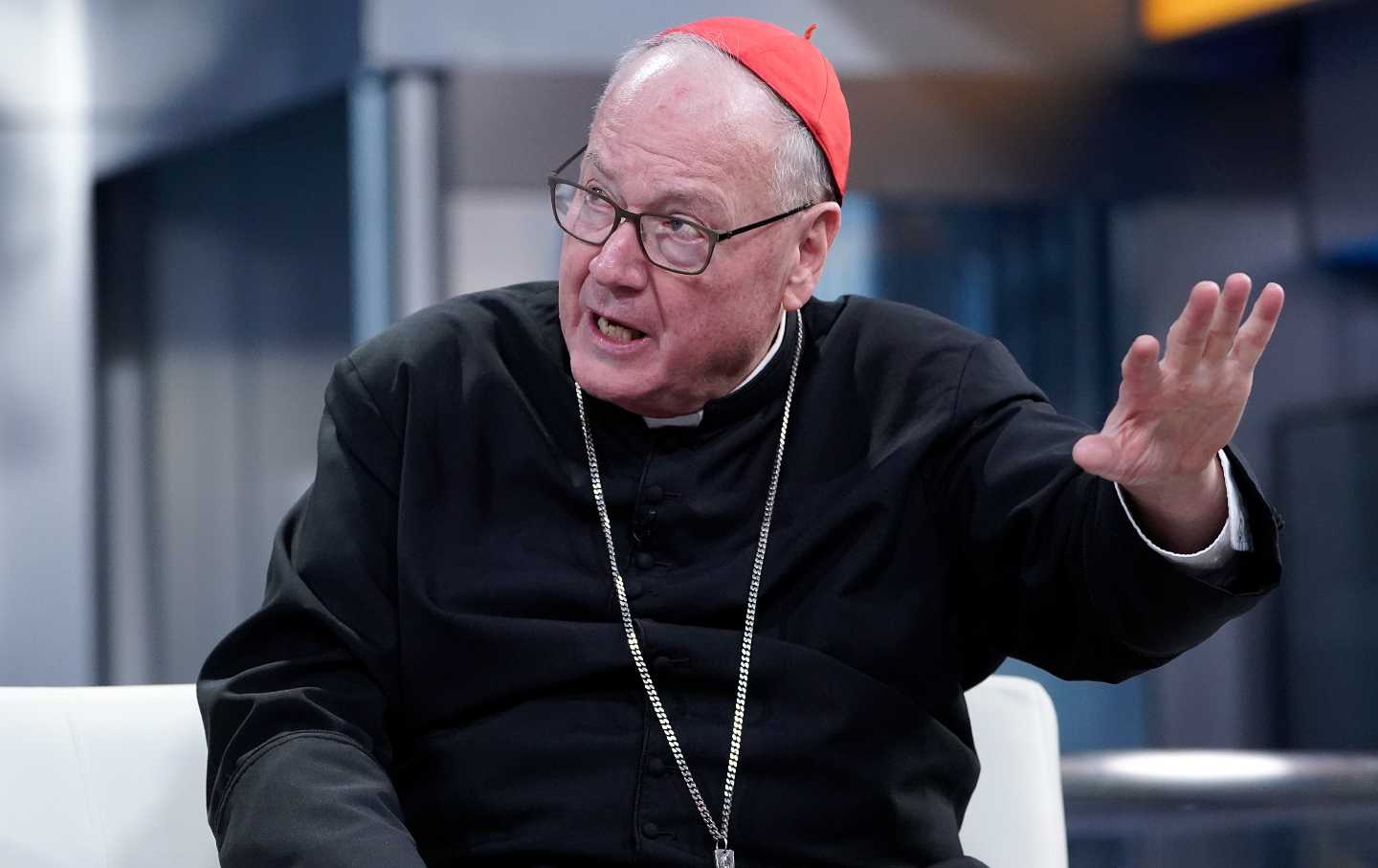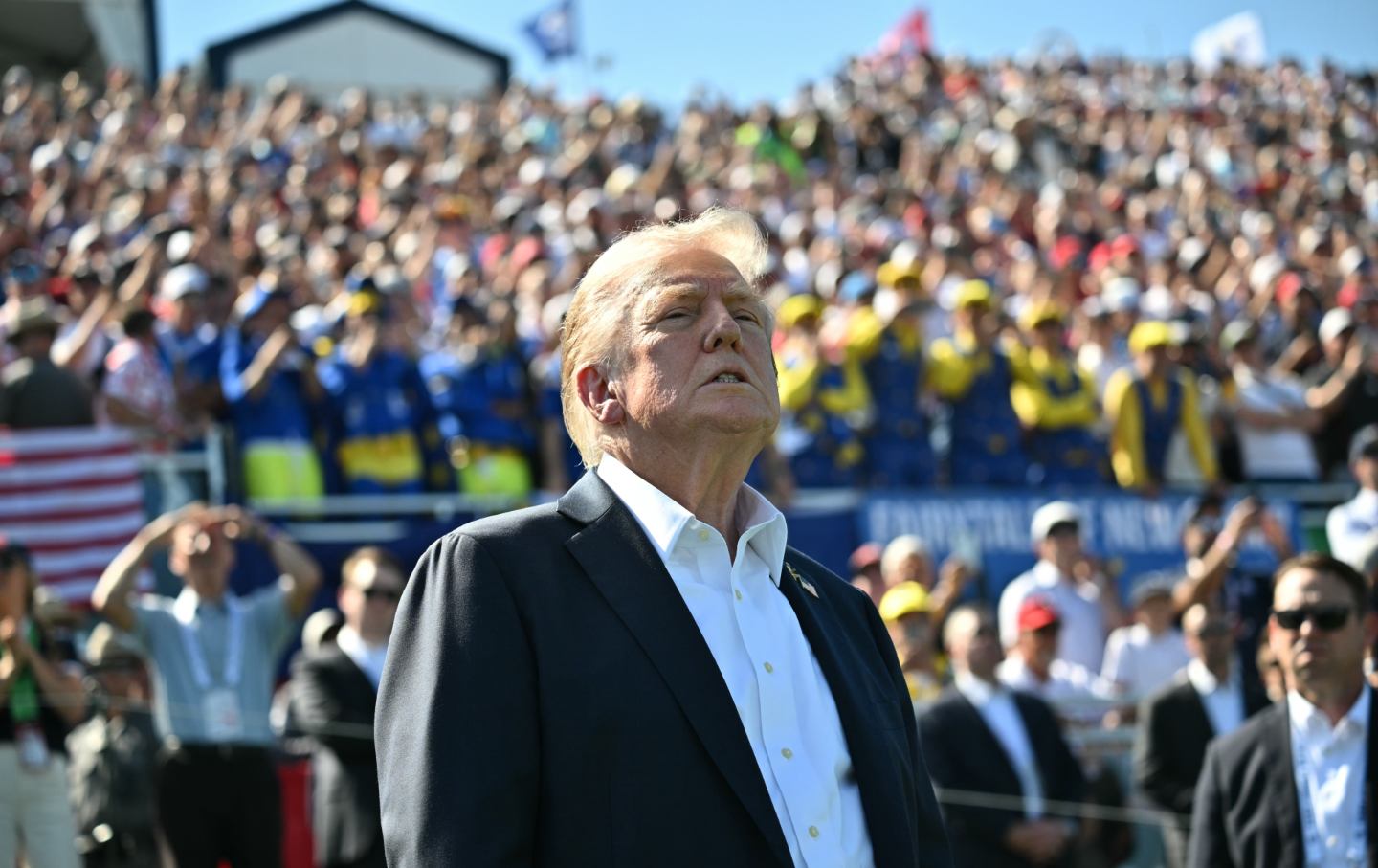
It’s a modest stroll from the residence of New York Cardinal Timothy Dolan, located near St. Patrick’s Cathedral, to the studio of Fox & Friends in midtown Manhattan. Over time, the distance seems to have grown shorter for Dolan, who recently made headlines by referring to Charlie Kirk, the controversial founder of Turning Point USA who was murdered, as “a modern-day St. Paul” during his appearance on the popular right-wing morning talk show.
This remark raises significant concerns. Cardinal Dolan leads 2.8 million Catholics in the second-largest archdiocese in the United States, and his words carry weight. For context, St. Paul is a foundational figure in Christianity—a first-century Pharisee known for his dramatic conversion and extensive missionary work. Dolan, as a cardinal, is undoubtedly familiar with the qualities that define sainthood. It prompts the question: does he genuinely believe Kirk embodied these characteristics?
Many Christians and Catholics have condemned Kirk’s murder but have felt compelled to highlight his troubling legacy, which includes a history of racist, homophobic, transphobic, and anti-immigrant rhetoric, as well as a fervent advocacy for gun rights. This sentiment has been echoed by prominent Black church leaders and organizations like the Catholic Sisters of Charity of New York, who directly criticized Dolan’s comments, stating that Kirk’s “prejudicial words do not reflect the qualities of a saint.” Their statement asserted that comparing Kirk to St. Paul risks muddling the true message of the Gospel and endorsing harmful rhetoric that undermines the very people Jesus calls us to love.
Dolan should be aware of this context. One might suggest that he chose his words carelessly. Known for his gregarious nature, Dolan often seems at home in the spotlight, and a widely viewed morning talk show could easily tempt him into such misstatements. However, there is another, more troubling possibility: that Dolan was fully aware of the implications of his words and intended to align himself with the more reactionary elements of the church.
St. Paul was one of Christianity’s earliest martyrs, executed under Roman Emperor Nero. The MAGA movement has seized upon Kirk’s death to proclaim him a martyr for their cause. This narrative has been echoed by political figures like Vice President JD Vance, who referred to Kirk as “a martyr for the Christian faith” during his memorial service in Arizona. By linking Kirk to a figure as significant as St. Paul, Dolan inadvertently lends credence to an ethnonationalist agenda with authoritarian tendencies.
This raises serious questions about why a Catholic cardinal, who has previously spoken out (albeit quietly for some) against the Trump administration’s harsh immigration policies, would choose to align himself with such a faction. Unfortunately, history offers ample precedent for this troubling trend. Before and during World War II, Catholic authorities often supported authoritarian regimes while opposing democratic governance. Historian John T. McGreevy notes that a blend of “fierce anti-communism, an underlying drumbeat of anti-Semitism, and skepticism about democratic politics” characterized the Catholic response in the 1930s.
Throughout this period, many Catholic leaders supported fascist dictators in Spain and Italy. While Catholic sentiment towards Hitler was generally more cautious, early responses were not outright condemnations. Notably, Vatican Secretary of State Eugenio Pacelli, who later became Pope Pius XII, praised Hitler for his stance against Bolshevism. The church’s signing of the Reichskonkordat in 1933 demonstrated a troubling willingness to compromise with the Nazis, while some American Catholics even expressed admiration for Mussolini.
The liberal political environment established after World War II, along with the reforms of Vatican II, illustrated a potential for Catholicism and democracy to coexist. However, with the recent decline of democratic institutions and the rise of populist movements globally, that order is fraying. In American Catholicism, vocal criticism of Pope Francis from archconservatives reflects a concerning shift towards an alignment with the far-right agenda, particularly regarding issues like LGBTQ rights.
Dolan’s comments on Kirk cannot be overlooked in this historical context. Fox News serves as a megaphone for the Trump administration, and Dolan’s eagerness to appear on the network suggests a concerning integration of powerful figures within the Catholic Church into the ethnonationalist agenda of the MAGA movement. In the wake of Kirk’s assassination, this unholy alliance appears to be solidifying, raising alarms about the direction in which the church is heading.
The implications of Dolan’s remarks extend beyond a simple misstep; they reflect a broader trend within segments of American Catholicism that are increasingly aligning with reactionary political forces. As the church navigates these turbulent waters, it must grapple with the fundamental question of what it means to embody the teachings of Christ in a society fraught with division and discord. The church’s moral authority is at stake, and the choices made by its leaders will resonate for generations to come.


